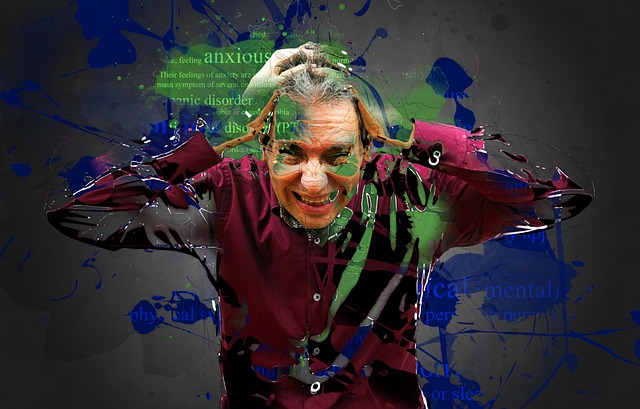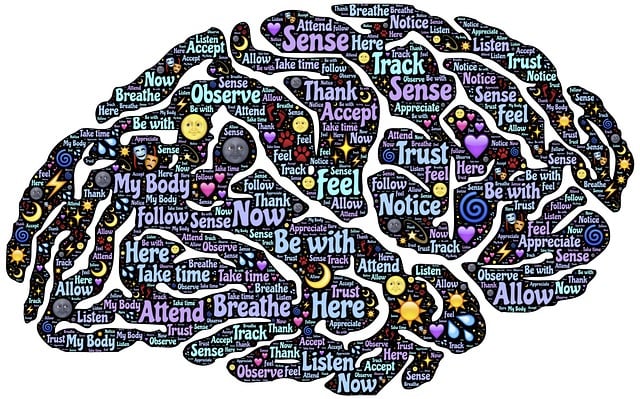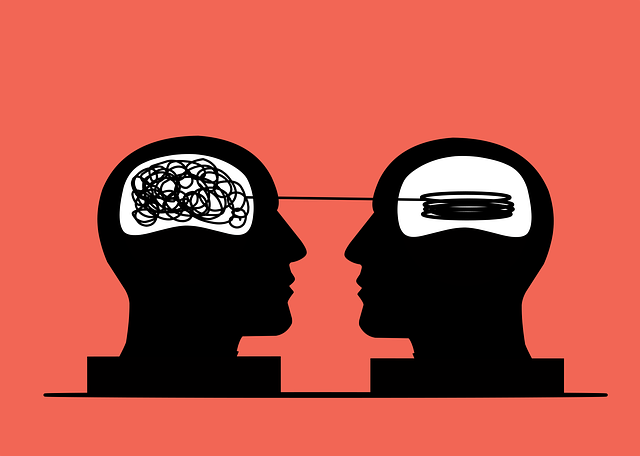Louisville Conduct Disorder Therapy provides a comprehensive support system for individuals grappling with loss, grief, and bereavement, offering counseling, self-awareness exercises, and mood management techniques. This holistic approach combines emotional counseling with behavioral strategies to enhance mental resilience, prevent depression, and address conduct disorder challenges, ensuring clients heal from profound losses while gaining tailored coping mechanisms and self-care practices.
Loss, grief, and bereavement counseling are essential services that help individuals navigate the challenging waters of emotional healing after a significant loss. This comprehensive guide explores these topics, from understanding the complexities of loss to the critical role counseling plays in supporting those affected. Discover how Louisville Conduct Disorder Therapy offers specialized support, addressing not just conduct issues but also the profound impact of grief. Learn about common challenges and effective strategies for bereavement counseling, offering hope and guidance for navigating this difficult journey.
- Understanding Loss, Grief, and Bereavement: A Comprehensive Overview
- The Role of Counseling in Navigating Difficulties After Loss
- Louisville Conduct Disorder Therapy: Supporting Individuals Through Grief
- Common Challenges Faced During the Grieving Process
- Effective Strategies and Techniques for Bereavement Counseling
Understanding Loss, Grief, and Bereavement: A Comprehensive Overview

Loss, grief, and bereavement are complex emotional experiences that vary from person to person. Understanding these processes is crucial for anyone seeking Louisville conduct disorder therapy or support during difficult times. Loss can stem from various sources, including the death of a loved one, major life changes, relationships ending, or even significant transitions like retirement. Each individual’s reaction to loss is unique; some may experience intense emotions immediately, while others might process grief over an extended period.
Grief is often characterized by a range of feelings, from profound sadness and anger to confusion and guilt. It involves a series of stages, as proposed by Elizabeth Kubler-Ross, which include denial, anger, bargaining, depression, and acceptance. However, these stages are not linear, and individuals may revisit them or experience them in different orders. Bereavement counseling aims to help people navigate these emotions, providing a safe space to express their feelings and gradually adapt to their new reality. Services like those offered by organizations with a Community Outreach Program Implementation focus on holistic support, including mood management and stress management workshops, to assist individuals in healing and rebuilding their lives after loss.
The Role of Counseling in Navigating Difficulties After Loss

After a profound loss, counseling plays an indispensable role in helping individuals navigate their emotional journey. Louisville Conduct Disorder Therapy, while often focused on specific behavioral issues, also offers a safe space for bereaved people to process their grief and find inner strength. Through professional guidance, clients can explore complex emotions, gain coping strategies, and cultivate resilience. This support is crucial for mental health awareness, as unprocessed grief can lead to prolonged sorrow or even exacerbate existing conditions like conduct disorders.
Counseling empowers individuals to transform their emotional pain into a manageable process. By fostering self-esteem improvement and inner strength development, clients learn to embrace life’s challenges with renewed perspective. In the midst of bereavement, counseling provides a beacon of hope, enabling individuals to gradually rebuild their lives while cherishing the memories of their loved ones.
Louisville Conduct Disorder Therapy: Supporting Individuals Through Grief

Louisville Conduct Disorder Therapy offers a unique and specialized support system for individuals navigating grief and bereavement. In addition to addressing emotional pain, this therapy focuses on understanding and managing behavioral patterns often associated with mental illness, such as conduct disorder. By integrating these two aspects, counseling becomes more holistic, catering to the individual’s entire well-being. This approach is especially beneficial for those who might be struggling with depression prevention or have been impacted by the Mental Illness Stigma Reduction Efforts, as it provides a safe space to process grief without judgment.
The therapy encourages self-care practices and emotional regulation strategies tailored to each person’s needs. Through this supportive environment, individuals can learn to cope with loss while also addressing any underlying behavioral challenges. This comprehensive method ensures that Louisville Conduct Disorder Therapy not only helps clients heal from grief but also equips them with tools to enhance their overall mental health and resilience.
Common Challenges Faced During the Grieving Process

The grieving process is a deeply personal journey, often fraught with challenges that vary from individual to individual. Common hurdles include intense emotions like sadness, anger, and guilt, which can feel overwhelming and make it difficult for individuals to cope. Many struggle with practical considerations, such as navigating day-to-day life without their loved one and adjusting to a new reality. This process is further complicated by the potential for physical health issues stemming from stress and emotional turmoil.
For those dealing with existing conditions like Louisville Conduct Disorder Therapy, bereavement adds another layer of complexity. It’s crucial for mental health professionals to conduct thorough risk assessments (Risk Assessment for Mental Health Professionals) tailored to each client’s unique circumstances, especially considering cultural competency (Healthcare Provider Cultural Competency Training). Encouraging the development of a robust self-care routine (Self-Care Routine Development for Better Mental Health) is also essential to support clients through this challenging period.
Effective Strategies and Techniques for Bereavement Counseling

In Louisville Conduct Disorder Therapy, bereavement counseling leverages a range of effective strategies and techniques to support individuals through the complex process of grief and loss. One powerful approach is integrating Self-Awareness Exercises, which encourage clients to explore their emotions, thoughts, and behaviors in safe, structured settings. By fostering introspection, these exercises enhance understanding and acceptance of one’s feelings, thereby facilitating the healing process.
Additionally, mood management techniques play a crucial role in bereavement counseling. Trained therapists employ various strategies to help individuals regulate emotional responses, such as deep breathing exercises, mindfulness practices, and cognitive reframing. These tools empower clients to navigate intense emotions, promote resilience, and enhance overall well-being during their Trauma Support Services journey.
Loss, grief, and bereavement counseling are vital components in helping individuals navigate the challenging waters of emotional healing after a significant loss. As previously mentioned, Louisville Conduct Disorder Therapy offers specialized support, utilizing effective strategies to assist those struggling with grief. By understanding the complexities of loss and its impact, therapists can foster a safe space for clients to express their emotions, find solace, and gradually adapt to life without their loved ones. Through comprehensive guidance and empathy, bereavement counseling empowers folks to transform their pain into manageable memories, allowing them to embrace a new chapter with resilience and hope.














